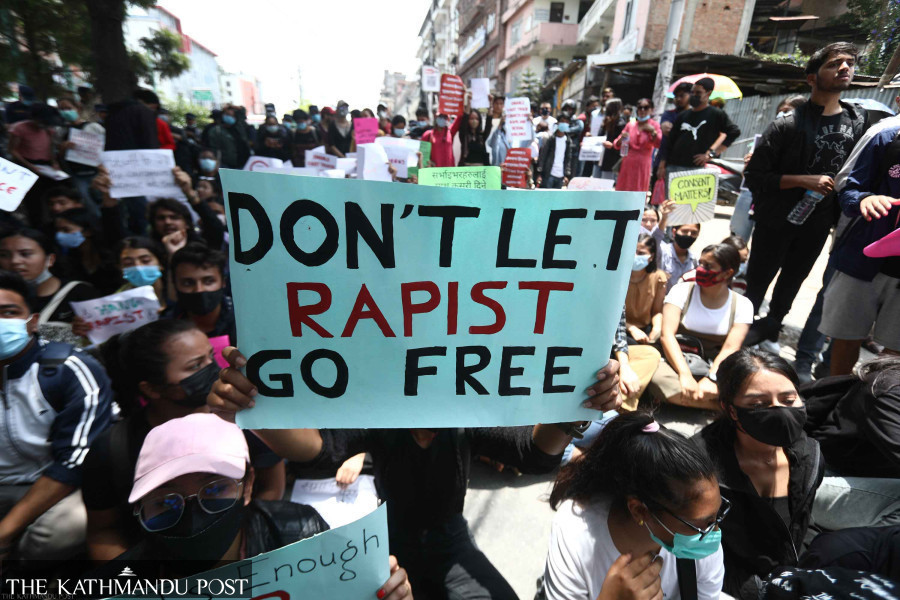Editorial
Twisted justice
Community-level consensus on crimes as heinous as rape and sexual assault is unacceptable.
In many Nepali communities, rape and sexual assault are often treated as minor offences and dealt with locally, with the accused individuals being welcomed back with alacrity. Just last week, a 30-year-old man from Pokhara, ward 29, sneaked into a minor girl’s room through a window. He tried to assault her, but fled after she resisted. Cases as serious as sexual assault should involve the police and legal action against the accused. These are non-negotiable. Yet the following day, the ward’s local settlement committee decided the case on its own, asking the accused to bow at the victim’s feet and do squats in apology—as if it was enough for such a heinous crime.
This is not an isolated case. This August, a 15-year-old Dalit girl from ward 11 of Rajbiraj Municipality in Saptari district was abducted and gang-raped. Rather than pushing for quick justice, the ward officials allegedly pressured the victim’s family to accept hush money and withdraw the charges against the perpetrators. Separately, in 2018, a village assembly in the same district went so far as to forge loan repayment papers to settle the rape case of a 16-year-old girl by four men.
Even in the case of Rinku Kumari Sada, who, after a gang rape in February, reportedly hanged herself, such a culture of cover-up was evident as community leaders tried to exonerate the perpetrators. A 2021 report, “Sexual Violence in South Asia: Legal and Other Barriers to Justice for Survivors”, highlighted that, among the survivors interviewed in Bangladesh, India and Nepal, over 60 percent were forced to resolve the cases locally. Community-backed exoneration for the accused has thus exposed the state’s failure in ensuring safety of young Nepali girls and women.
Legally, mediators who settle rape and assault cases can face prison of up to three years and fines of up to Rs30,000. Likewise, resolving cases out-of-court is prohibited where the sentence is over three years; local authorities cannot mediate. Still, politically influential community representatives try to bury such cases, fooling people and even the families of the victims under the guise of ijjat (honour). Many families in a patriarchal society like ours put their honour above everything else. Additionally, the culture of blaming women renders any legal reparation elusive. In many instances, even after a complaint is filed against perpetrators, investigations, medical examinations, and prosecutions and trials are deliberately delayed to save them. Often, the perpetrators are set free on bail. These acts reveal how willing society and so-called community leaders are to compromise women’s respect and dignity, always treating them as second-class citizens.
Community consensus on crimes as heinous as rape and sexual assault is unacceptable. Those who commit rape and attempt rape, and those who settle such cases, must be put behind bars. Nepal’s Penal Code 2017 stipulates imprisonment of those accused of attempting rape (involving a girl aged between 10 and 14) for 18-20 years. And if convicted, they face 9 to 10 years in prison. In the case in Pokhara, the local representatives decided on a settlement considering the accused man’s family situation, the minor’s exams, and, most disturbingly, they argued that there had been no rape and hence the perpetrator deserves leeway. Normalisation of these crimes of sexual nature is dangerous—both attempted rape and rape are grievous crimes against women and warrant full and harsh legal accountability. These actions also call for urgent monitoring of how sexual assault and rape cases are addressed at the community level.




 11.12°C Kathmandu
11.12°C Kathmandu














